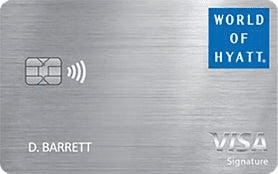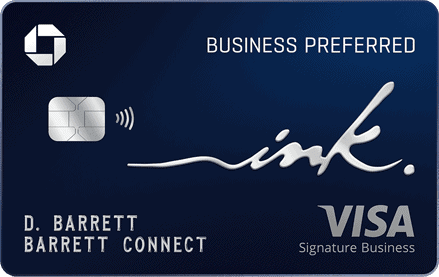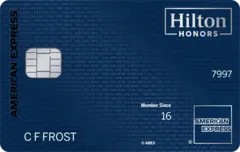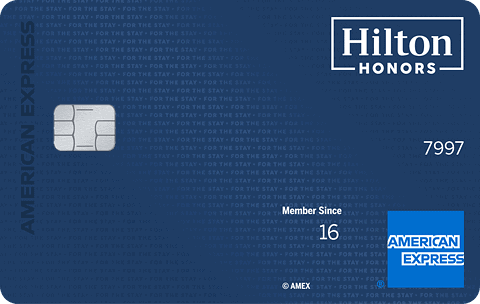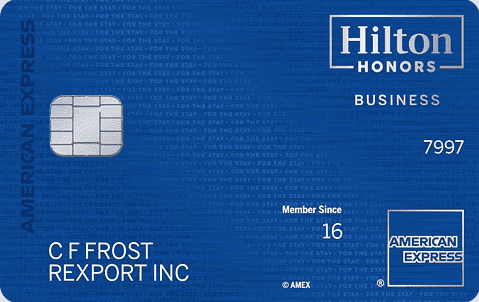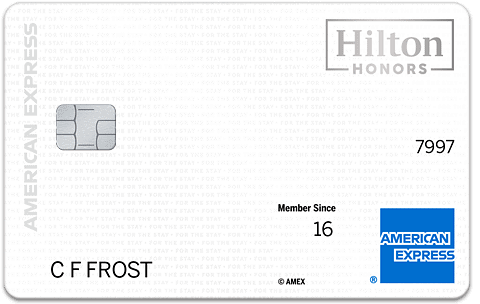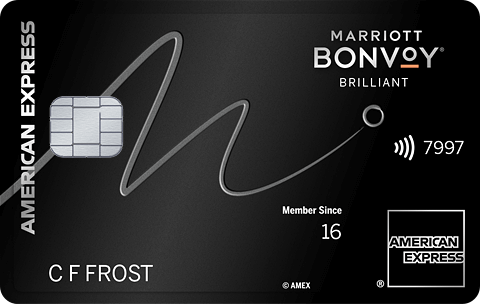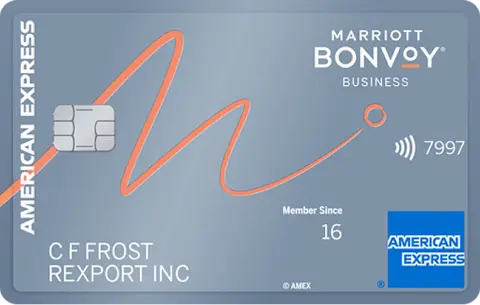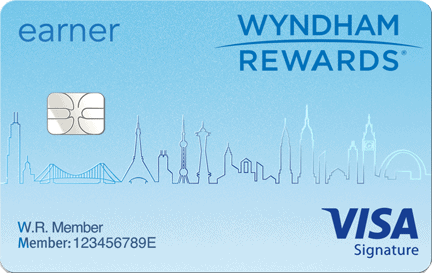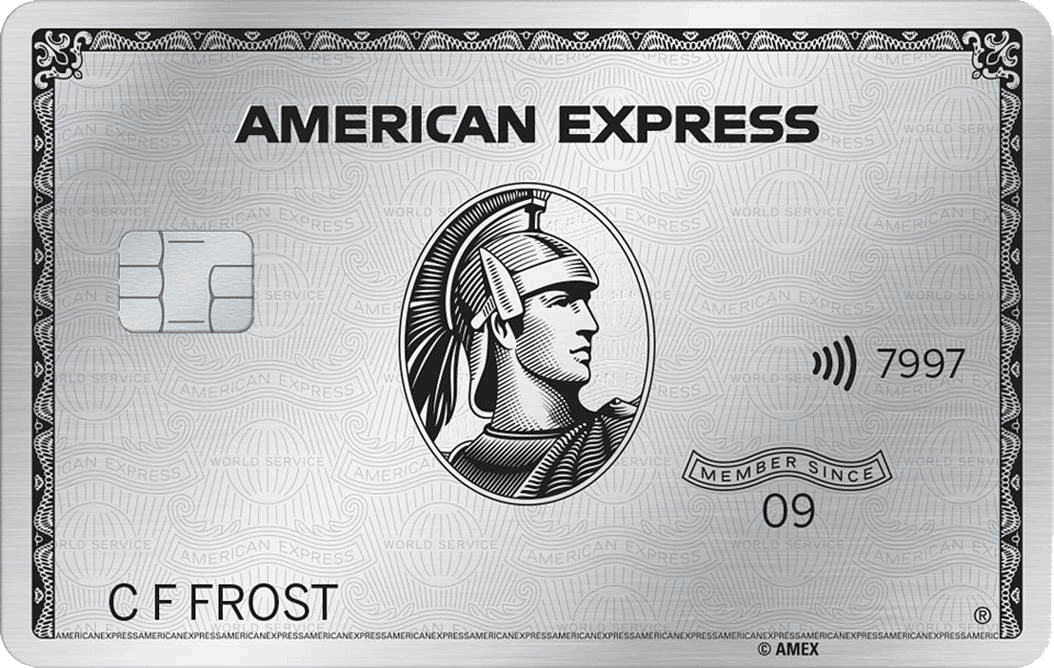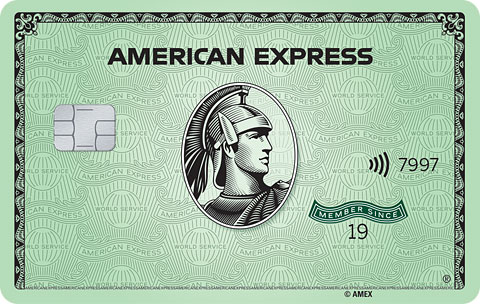Best Hotel Credit Cards
Marriott, Hyatt, Hilton, Wyndham, Intercontinental. The list of major hotel chains goes on and on.
There’s lots of hotel rewards programs to choose from. While many people pick one, being well versed in different programs will help you choose the right hotel when traveling.
One of the most common mistakes I see people make is opening their first co-branded hotel card and remaining strictly loyal to that hotel program. This mistake may mean you miss out on better hotels, or use way more points than you should.
This guide will help show you understand the variety of hotel cards out there, as well as help you select the best card for each of the major hotel groups based on your needs.
10xTravel is part of an affiliate sales network and receives compensation for sending traffic to partner sites, such as CreditCards.com. This compensation may impact how and where links appear on this site. This site does not include all financial companies or all available financial offers. Terms apply to American Express benefits and offers. Enrollment may be required for select American Express benefits and offers. Visit americanexpress.com to learn more. All values of Membership Rewards are assigned based on the assumption, experience and opinions of the 10xTravel team and represent an estimate and not an actual value of points. Estimated value is not a fixed value and may not be the typical value enjoyed by card members.
Editors Note: Opinions expressed here are author’s alone, not those of any bank, credit card issuer, hotel, airline, or other entity. This content has not been reviewed, approved or otherwise endorsed by any of the entities included within the post.
Hotel Credit Card Overview
Hotel cards are a critical part of the points and miles infrastructure.
Unlike other types of cards, hotel credit cards tend to have the most rapid changes. New cards are coming out more often than airline credit cards, and the benefits associated with new cards tend to change every few years.
Most major hotel chains have a co-branded credit card. These cards are offered by banks such as Chase or American Express. The bank is the one offering the rewards, not the hotel program directly.
Over time the benefits associated with hotel credit cards tend to change as banks negotiate different contracts with the hotels. This means if you have any issues, you’ll be dealing with the bank and not the hotel itself.
Annual fees for hotel credit cards run the spectrum. Everything from no annual fee cards all the way up to $550.
Some hotel credit cards are just shy of higher annual fees seen on some premium travel credit cards. For lower annual fee cards, banks often waive the annual fee for the first year. However, for more premium hotel credit cards, expect to pay the annual fee in the first year.
Premium hotel credit cards offer a lot of tempting benefits to help offset the annual fee. Everything from free nights every year to top-tier status are benefits you’ll get in exchange for a higher annual fee.
Most hotel credit cards offer a sign-up bonus for spending a certain amount of money on the card in the first few months you have the card. Although the bonuses change over time, you’ll often see these bonuses ranging from 25,000 points up to 150,000 points.
Not All Hotel Chains Are The Same
Before settling in on the best hotel credit cards out there, it’s important to understand that not all hotel chains are the same. When it comes to points and miles, most people look at 5 hotel chains: Hyatt, Hilton, Intercontinental, Marriott, and Wyndham.
One point is not the same between each program.
A quick and easy way to understand the difference is to know the range of points you’ll need to book a room at each hotel.
| Program | Lowest Category Points Needed | Highest Category Points Needed |
|---|---|---|
| Hyatt | 5,000 | 45,000* |
| Hilton | 5,000 | 95,000* |
| Intercontinental | 10,000 | 70,000* |
| Marriott | 5,000 | 120,000 |
| Wyndham | 7,500 | 30,000 |
*Hyatt, Hilton and Intercontinental have a few select hotels that require more points, but in general these are the highest category for each program.
As you can see, the lowest category at each group requires roughly the same amount of points, but as you get into higher tier hotels the amount of points needed varies significantly.
Keep this in mind, as this difference in point requirements is the primary factor behind why you don’t want to transfer bank points to some hotels, whereas for others it makes sense.
Are Hotel Co-Branded Cards the Best Way to Acquire Hotel Points?
Like most things in life, when asking if co-branded hotel credit cards are the best way to acquire hotel points, the answer is it varies.
For some programs, you may not want to transfer points such as Chase Ultimate Rewards or American Express Membership Rewards to the hotel program. In these programs, it makes more sense to earn points through co-branded credit cards.
In other programs, co-branded credit cards are roughly equal to transferable currencies. In these cases, the choice simply depends on what fits your immediate needs.
Hotel Status: When is it Worth it, and When Should it Influence Where You Stay
A common benefit among the best hotel credit cards is the opportunity to earn hotel status. With some cards, you’ll earn status simply just for having the card. Meanwhile, other cards will give you the opportunity to earn hotel status by spending a certain amount of money on the card during the year.
Hotel status comes with a variety of benefits, but there’s just a few you should consider to be influential when choosing your travel accommodations. Namely, what type of upgrades you’ll get, free breakfast, and free nights.
First, upgrades. Your eligibility for upgrades will vary depending on the level of status you have. At the most basic level, you’ll be eligible for an upgrade to a slightly better room. This may mean going from a garden view to a beach view at a resort. As your status improves you’ll be eligible for upgrades to suites.
At a minimum, upgrades to better rooms should be when you start considering hotel status worth it. If you have a large family, suite upgrades may be a priority to have more space to spread out.
Second, free breakfast. This may not seem like the biggest benefit, but many hotels are restricting free breakfast to elite members. In some places, breakfast may cost you $30 or more per person. The ability to get free breakfast can easily save even a single traveler over $100 on a long stay. For a family of 4 it can be over $100 per day saved.
Finally, free night eligibility. Some programs offer a fifth night free on award stays when you reach a certain status level. If you’re often traveling for 5 nights or more, this benefit can really help you stretch your points further.
Although status may come with other benefits, they often aren’t of much value. For example, you’ll get more points for every dollar spent at the hotel, but if you’re not paying for the room and have free breakfast this benefit really shouldn’t be influential when deciding where to stay.
Below you’ll find an overview of when you get these benefits in each program. The value of each benefit will vary from person to person. If one is more important to you than the others, then you’ll want to compare your status levels to the status level that offers your desirable benefits.
| Program | Room Updgrades | Free Breakfast | Free Nights |
|---|---|---|---|
| Hyatt | Discoverist | Globalist | n/a |
| Hilton | Gold | Gold | Silver (Fifth Night Free) |
| Intercontinental | Platinum Elite | N/A | Cardholder (4th night free) |
| Marriott | Gold Elite | Platinum Elite | Member (Fifth Night Free) |
| Wyndham | Gold | N/A | N/A |
Not every hotel’s loyalty program offers all of the benefits. If you have status, do a quick comparison. If you don’t qualify for any of these benefits, or if you don’t find them worthwhile you shouldn’t let your hotel status influence your choice of hotels.
Best Hotel Credit Cards
There really is no single “best hotel credit card” out there. It will vary depending on what hotel chain you’re talking about, the location you’re traveling to, etc. It wouldn’t make sense to say the Hilton Honors Aspire American Express Card is the best card for hotels if you’re traveling somewhere that doesn’t have a Hilton.
Instead, the best hotel card starts with knowing what the best hotel is for you. Unlike flights, where the points you use will likely depend on flight availability, for hotels you’ll need to know what your hotel options are first.
A good spot to start for award hotels is to check sites such as PointsYeah or Rooms.aero. These types of sites will show you award hotels at your destination. To ensure that the required point total listed is accurate, click through to the hotel’s website directly to double check how many points you’ll need.
If you’re looking to use points through a travel portal, you can use TripAdvisor to see traveler pictures and reviews to help you decide.
Even if you plan to stay at a major hotel chain, you should be sure to compare the cash price if you’re planning on transferring points. Sometimes you can book a hotel for less points through a travel portal instead of transferring the points to the hotel’s own loyalty program.
There really is no single “best hotel credit card” out there. It will vary depending on what hotel chain you’re talking about, the location you’re traveling to, etc.
Best Hotel Cards for Hyatt Hotels
Hyatt has been expanding its portfolio of hotels drastically over the past few years. Through Hyatt’s acquisitions and partnerships they’ve been able to add hundreds of hotels under their name. Hyatt is often cited as one of the most valuable hotel loyalty programs because of how few points are needed compared to other hotel programs.
Hyatt partners with Chase, meaning you can transfer Chase Ultimate Rewards to Hyatt. Alternatively, Chase offers co-branded cards that can be used to help build World of Hyatt points as well.
Best Premium Card: Hyatt
Earn 100,000
bonus points + $500 Chase Travel℠ promo credit
after you spend $5,000 on purchases in the first 3 months from account opening.
Annual Fee: $795
Best Value Card: Hyatt (tie)
The World of Hyatt Credit Card
Earn 2 Free Nights
after you spend $4,000 on purchases in the first 3 months from account opening. Plus, earn 25,000 Bonus Points after you spend $12,000 on purchases in the first 6 months from account opening.
Annual Fee: $95
Chase Sapphire Preferred® Card
75,000
bonus points
after you spend $5,000 on purchases in the first 3 months from account opening.
Annual Fee: $95
Best Business Card: Hyatt
Chase Ink Business Preferred® Credit Card
90,000
bonus points
after you spend $8,000 on purchases in the first 3 months after account opening.
Annual Fee: $95
Best No Fee Card: Hyatt
$200
Bonus
after you spend $500 on purchases in your first 3 months from account opening
Best Hotel Cards for Hilton Hotels
Hilton is a popular choice for frequent travelers. With over 6,000 hotels worldwide you’re likely to find a Hilton wherever you’re traveling.
Hilton partners with American Express. American Express offers three co-branded Hilton credit cards and one business card. Additionally, American Express Membership Rewards transfer to Hilton. For every 1,000 Membership Rewards transferred, you’ll receive at least 2,000 Hilton Honors points. Keep an eye out for a bonus transfer period where you can receive up to 3,000 Hilton Honors points for the same 1,000 Membership Rewards transferred.
There’s no wrong choice when acquiring Hilton Honors points. Remember, American Express limits you to one welcome bonus per lifetime, so many people tend to start with the Hilton co-branded cards first.
Best Premium Card: Hilton
Hilton Honors American Express Aspire Card
175,000
Hilton Honors Bonus Points
after you spend $6,000 in purchases on the Card within your first 6 months of Card Membership. Offer ends 8/13/2025.
Annual Fee:
$550
Best Value Card: Hilton
Hilton Honors American Express Surpass® Card
130,000
Hilton Honors Bonus Points
after you spend $3,000 in purchases on the Hilton Honors American Express Surpass® Card in your first 6 months of Card Membership. Offer Ends 8/13/2025.
Annual Fee:
$0 introductory annual fee for the first year, then $150
Best Business Card: Hilton
The Hilton Honors American Express Business Card
Limited time offer: Earn 150,000
Hilton Honors Bonus Points
after you spend $8,000 in purchases on the Hilton Honors Business Card within the first six months of Card Membership. Plus earn an additional 25,000 Hilton Honors Bonus points after you spend an additional $2,000 in purchases on your card within your first 6 months of card membership. Offer Ends 8/13/2025.
Annual Fee:
$195
Best No Fee Card: Hilton
Hilton Honors American Express Card
100,000
Hilton Honors Bonus Points and a $100 Statement Credit
after you spend $2,000 in purchases on the Hilton Honors American Express Card in your first 6 months of Card Membership. Offer Ends 8/13/2025.
Best Hotel Cards for Marriott Hotels
Marriott tends to be a very popular choice among points and miles enthusiasts, and for good reason. Marriott has a reputation for high quality. Whether you’re staying at a St Regis or a Courtyard, many have their expectations met due to a high standard of quality control.
Marriott has some of the best credit card options out there. Unlike other hotels brands that partner with just one bank, Marriott partners with both Chase and American Express. This gives you a large amount of Marriott cards to choose from.
Although you can also transfer Chase Ultimate Rewards or American Express Membership Rewards to Marriott, it is inadvisable to transfer them unless it is to top off your account. If you want to use Ultimate Rewards or Membership Rewards to book a Marriott hotel, you should always compare the cost in the Chase Travel Portal or through American Express Travel®. Covering a cash rate with points sometimes uses less points than transferring to Marriott itself.
Best Premium Card: Marriott
Marriott Bonvoy Brilliant® American Express® Card
Earn up to 150,000
Marriott Bonvoy® bonus points
Earn 100,000 points after you spend $6,000 and an extra 50,000 points after you spend an additional $2,000 in purchases on the Card within your first 6 months of Card Membership.
Annual Fee:
$650
Best Value Card: Marriott
Marriott Bonvoy Boundless® Credit Card
Earn 5 Free Night Awards
(each night valued up to 50,000 points) after spending $5,000 on eligible purchases within 3 months of account opening. Certain hotels have resort fees. Last Chance! Offer ends 9 AM EST on 7/17/2025.
Annual Fee: $95
Best Business Card: Marriott
Marriott Bonvoy Business® American Express® Card
Earn 3 Free Night Awards
after you use your new Card to make $6,000 in eligible purchases within the first 6 months of Card Membership. Each Free Night Award has a redemption level up to 50,000 Marriott Bonvoy® points, for a total potential value of up to 150,000 points, at hotels participating in Marriott Bonvoy®. Certain hotels have resort fees. Terms apply.
Annual Fee:
$125
Best No Fee Card: Marriott
Marriott Bonvoy Bold® Credit Card
Earn 60,000
Bonus Points plus 1 Free Night Award
after spending $2,000 on purchases in the first 3 months from account opening. Free Night Award valued up to 50,000 points. Certain hotels have resort fees.
Best Hotel Cards for Wyndham Hotels
If there’s any hotel group that rivals the sizes of Hilton and Marriott it’s Wyndham hotels. Although Wyndham hotels aren’t as popular in the US as Hilton and Marriott, their worldwide portfolio of over 8,000 hotels makes Wyndham the largest hotel group in the world.
Wyndham’s award chart is also one of the simplest. It only has three tiers, with award nights cost either 7,500, 15,000, or 30,000 points.
Best Premium Card: Wyndham
Capital One Venture X Rewards Credit Card
75,000
Venture Miles
after you spend $4,000 in purchases in the first 3 months.
Annual Fee: $395
Best Value Card: Wyndham
Wyndham Rewards Earner® Plus Card
45,000
bonus points
after spending $2,000 on purchases in the first 180 days
Annual Fee: $75
Best Business Card: Wyndham
Capital One Venture X Business
Earn 150,000
Bonus Miles
once you spend $30,000 in the first 3 months from account opening
Annual Fee: $395
Best No Fee Card: Wyndham
30,000
bonus points
after spending $2,000 on purchases in the first 180 days
Best Hotel Cards for Booking Hotels with Cash
Even though these chains leave 20,000+ hotels to choose from, you may instead want to book another hotel that isn’t affiliated with one of the major hotel chains. If a non-chain hotel better fits your travel style you’re not out of luck.
For luxury hotels, you should look to book using a luxury hotel program such as Visa Luxury Hotel Collection or American Express Fine Hotels & Resorts Program. These programs offer additional benefits such as complimentary upgrades or credits during your stay. If you book through Amex Fine Hotels & Resorts you can also redeem membership rewards to cover your stay.
Travelers seeking a stay anywhere ranging from a hostel to a luxury hotel, you can utilize the Chase travel portal where you can redeem your Ultimate Rewards against the cash cost of a hotel. Chase Sapphire Reserve® card holders can redeem Ultimate Rewards for 1.5 cents each, while other cards such as the Chase Sapphire Preferred® Card or Chase Ink Business Preferred® Credit Card can get 1.25 cents per point through the travel portal.
Best Premium Cards: Booking Hotels with Cash
Earn 100,000
bonus points + $500 Chase Travel℠ promo credit
after you spend $5,000 on purchases in the first 3 months from account opening.
Annual Fee: $795
The Platinum Card® from American Express
You may be eligible for as high as 175,000
Membership Rewards® Points
after you spend $8,000 in eligible purchases on your new Card in your first 6 months of Card Membership. Welcome offers vary and you may not be eligible for an offer. Apply to know if you’re approved and find out your exact welcome offer amount – all with no credit score impact. If you’re approved and choose to accept the Card, your score may be impacted.
Annual Fee:
$695
Best Value Cards: Booking Hotels with Cash
Chase Sapphire Preferred® Card
75,000
bonus points
after you spend $5,000 on purchases in the first 3 months from account opening.
Annual Fee: $95
40,000
Membership Rewards® Points
after you spend $3,000 on purchases on your new Card in your first 6 months of Card Membership. All information about the American Express® Green Card has been collected independently by 10xTravel.
Annual Fee:
$150
Best Business Card: Booking Hotels with Cash
Chase Ink Business Preferred® Credit Card
90,000
bonus points
after you spend $8,000 on purchases in the first 3 months after account opening.
Annual Fee: $95
Best No Annual Fee Card: Booking Hotels with Cash
$200
Bonus
after you spend $500 on purchases in your first 3 months from account opening
Bottom Line
The best hotel credit card depends on which hotel brand you’re looking to stay at. While some can generate good value by transferring from a bank program, other hotel chains make more sense to stick with earning their points directly.
Whichever path you take, always be sure to compare the cash rates to the cost in points offered by the hotel before transferring points. Sometimes, the cash rate may make it cheaper to book through a bank travel portal.
FAQ
How Many Points Does A Free Hotel Night Cost?
The amount of points needed for a free hotel night will vary depending on the hotel chain you’re booking with. At a minimum, expect 5,000 points a night. Some hotels go all the way up to 125,000 points a night for the most exclusive hotel options.
Can You Transfer Points From One Hotel Account To Another?
Typically, yes. Many hotel programs offer the option to pool points together between two or more accounts to make a booking, while others allow you to transfer them at no charge between members. This varies amongst hotel programs, so check the program you’re interested in for more details.
What is the Single Best Hotel Credit Card?
There isn’t one hotel credit card that is better than any others. It will simply depend on what hotel you’re looking to book.
Can I Use My Hotel Points to Book a Night for Someone Else?
Yes! Most hotel programs give you the option to put someone else’s name on the reservation. It is always a good idea to call the hotel after booking to be sure they have the correct information. Keep in mind, if you book a hotel for someone else with your points, they will not receive any benefits you get from any status you have with the hotel.
Can I Have More Than One Hotel Credit Card?
Generally yes, although there are some exclusions. Most notably with Marriott. Check the terms and conditions of every card you’re applying for before clicking submit.
What Other Perks Might I Find With Hotel Credit Cards?
In addition to hotel status offered by some credit cards, many offer a free night every year you renew your card. Most of these have some strings attached – such as the categories you can book, or limiting you to booking only on weekends.
Can I Book Flights with Hotel Points?
Sometimes. Marriott is known for having the ability to transfer points to almost every airline program out there. However, it usually only makes sense for topping off your account rather than transferring all the points you need to book a flight as the transfer ratio is not very favorable.
Will I Lose My Hotel Points If I Close My Co-Branded Card?
No. Once your points deposit to your hotel account, they are now yours. You can close your account and be confident that you’ll maintain your points.



